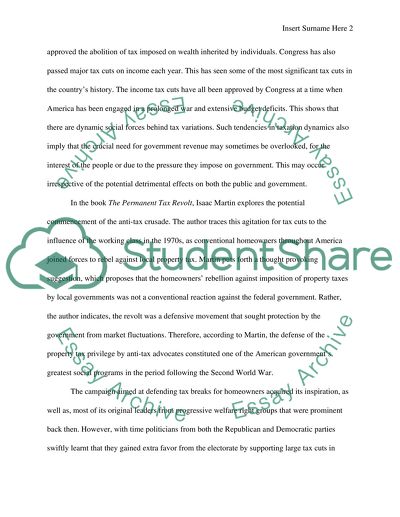Cite this document
(“Book review forthe permanent tax revolt Report/”, n.d.)
Book review forthe permanent tax revolt Report/. Retrieved from https://studentshare.org/macro-microeconomics/1631043-book-review-forthe-permanent-tax-revolt
Book review forthe permanent tax revolt Report/. Retrieved from https://studentshare.org/macro-microeconomics/1631043-book-review-forthe-permanent-tax-revolt
(Book Review Forthe Permanent Tax Revolt Report/)
Book Review Forthe Permanent Tax Revolt Report/. https://studentshare.org/macro-microeconomics/1631043-book-review-forthe-permanent-tax-revolt.
Book Review Forthe Permanent Tax Revolt Report/. https://studentshare.org/macro-microeconomics/1631043-book-review-forthe-permanent-tax-revolt.
“Book Review Forthe Permanent Tax Revolt Report/”, n.d. https://studentshare.org/macro-microeconomics/1631043-book-review-forthe-permanent-tax-revolt.


